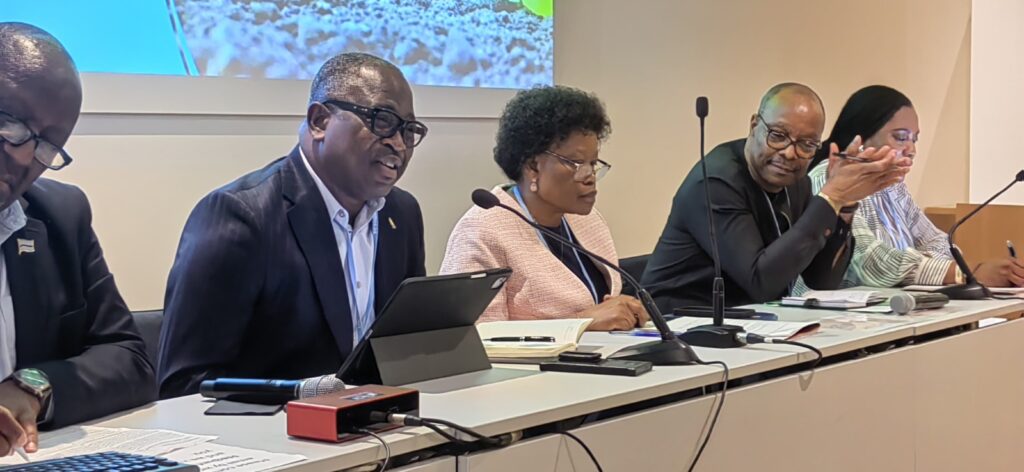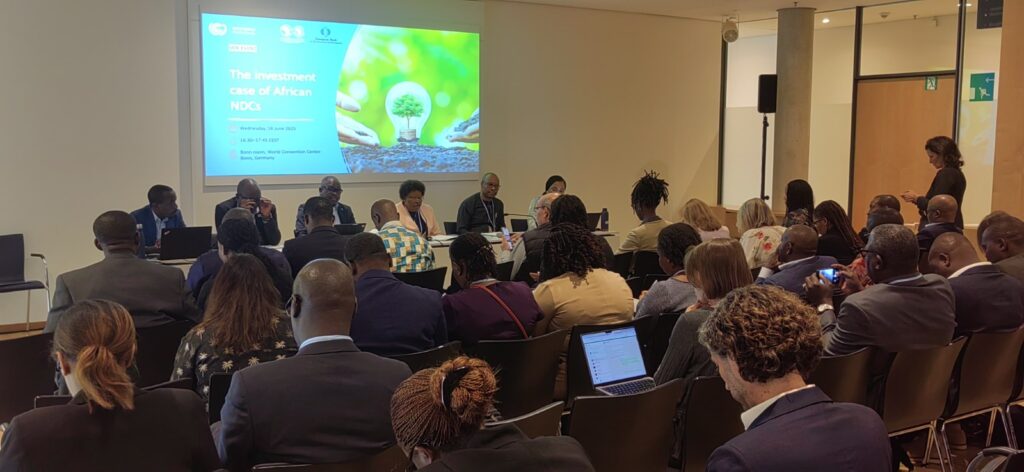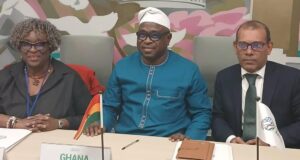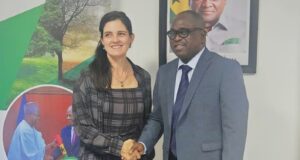By: Christian SOWADA
Speaking at the 62nd session of the UNFCCC Subsidiary Bodies (SB62) on June 18, 2025, Ghana’s Minister of State for Climate Change and Sustainability, Hon. Seidu Issifu, made a compelling case for significant investment in Africa’s Nationally Determined Contributions (NDCs). During a high-level side event titled “The Investment Case for African Nationally Determined Contributions (NDCs),” Minister Issifu urged global partners to view African NDCs as strategic blueprints for climate resilience, economic growth, and sustainable development, rather than mere pledges.
In a distinguished panel discussion, that included Commissioner Margaret Wembeza of Uganda, Professor Anthony Nyong of the African Development Bank, and Mr. Balisi Gopolang of Botswana, along with a senior official from Zimbabwe, Minister Issifu highlighted the persistent underfunding of Africa’s climate goals. He specifically pointed to Ghana’s NDCs, which encompass 47 program actions, 19 policy reforms, and 11 priority sectors—ranging from health and water resources to energy and agriculture. These initiatives are estimated to cost between US9.3 billion and US15.5 billion and are poised for scaled-up implementation.

Ghana’s Commitment to Green Investment and Policy Reforms
Minister Issifu emphasized Ghana’s dedication to attracting green investments through private sector partnerships and supportive policies, particularly within the transport sector. He cited significant reforms, including the 2023 national electric vehicle policy, the introduction of eight-year tax incentives, and the implementation of decentralized vehicle emissions standards. These efforts are bolstered by local innovations from companies like KOFA, WAHU, and Solar Taxi, which are actively leveraging carbon markets to accelerate e-mobility in Ghana.
A Call for Climate Justice and Debt Forgiveness
Despite these advancements, Minister Issifu stressed that innovation alone cannot offset unfair financial burdens. He issued a direct appeal for debt forgiveness, noting that many African nations are incurring debt as an emergency response to climate crises they did not cause. “We are being forced to borrow to clean up the mess caused by climate change—a crisis we did not create. Debt forgiveness is not charity. It is justice,” he stated, a sentiment that resonated strongly with attendees.

In response, Professor Nyong outlined the African Development Bank’s NDC 3.0 implementation framework, reaffirming the bank’s commitment to supporting viable climate projects across the continent. Representatives from Botswana and Zimbabwe shared insights from their national NDCs, reinforcing the critical need for innovative financing mechanisms that align with their respective development plans.
The event served as a powerful reaffirmation of African agency and leadership. Through Minister Issifu’s impactful intervention, Ghana solidified its position as a champion for climate justice, sustainable finance, and inclusive growth. As SB62 continues, Ghana’s message is clear: Africa is actively developing solutions and requires fair, timely investment and trust-based partnerships, not handouts.
 EX TV GH People Matter
EX TV GH People Matter




